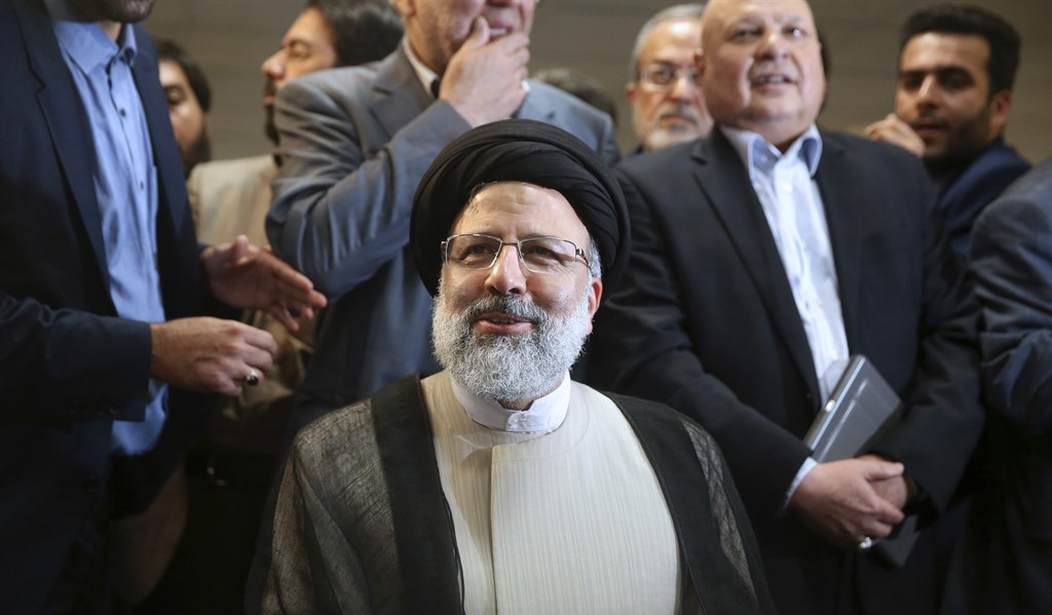The agreement Joe Biden made to bring home six American citizens from imprisonment in Iran isn’t a done deal yet. The six Americans have been released from the notorious hell-hole Evin Prison and taken to a hotel in Tehran where they will be held under guard until the rest of the agreement with the U.S. is completed.
That may take a while. It involves taking $6 billion that was being held by South Korea and sending it to Switzerland where it will be converted to euros and then on to Qatar where parties will establish a long list of instructions about how Iran can use the cash.
The U.S. says the cash will only go to fund humanitarian needs like food and medicine. But Iran has different ideas about any restrictions placed on the funds.
“The process of releasing billions of dollars from the assets of the Islamic Republic of Iran, which were illegally seized in South Korea by the United States for several years, has begun,” Iran’s foreign ministry said in a statement. “The decision on how to utilize these unfrozen resources and financial assets lies with the Islamic Republic of Iran.”
So, no restrictions. And the distribution of the cash is in the hands of one of Iran’s only friends in the region: Qatar. How do you suppose that’s going to work out for Biden?
Iran has a long history of abusing humanitarian carve-outs, analysts warn.
In 2019, for example, the Justice Department charged a Turkish state-owned lender, Halkbank, with helping Iran evade U.S. oil sanctions under the auspices of food sales. Iran has also been known to buy pharmaceuticals to sell off to other countries, given sanctions exemptions for such transactions. “Just because they’re buying medicine does not mean that they’ll use the medicine,” Gabriel Noronha, the State Department’s former special adviser for Iran, tells The Dispatch. “It’s a handy way to just launder money.”
The fact is that even if we monitor Iran’s use of the cash, it will still free up money for other budget items. Iranian President Ebrahim Raisi’s budget this year slashes development funds while increasing defense spending by 10%. Spending on defense research — including the body that’s responsible for nuclear weapons research and development — saw its budget triple.
The $6 billion in ransom will be an account that Iran can draw down — as long as Qatar approves of the spending. It’s so hard to say “no” to a friend, isn’t it?
“Iran’s ability to access more than $6 billion in frozen funds will free a similar amount it originally intended to use for the same humanitarian purchases. Tehran will likely use most of this revenue for domestic purposes to strengthen regime stability,” Norman Roule, former national intelligence manager for Iran at the Office of the Director of National Intelligence, says in an interview. “A smaller, but impactful amount will be used to fund Iran’s missile programs, foreign terrorist groups and militias, and the security personnel that tortured and killed so many protestors—mainly women—in the recent unrest.”
They’re still torturing and killing women, according to Iranian journalist Masih Alinejad.
See how agents of the Islamic Republic beat a woman, following the supreme leader’s call for action against anyone breaking the law. Walking unveiled is deemed illegal, yet Iranian women defy this rule and resist every day. #womanLifeFreedom pic.twitter.com/YP2u7oIEK6
— Masih Alinejad 🏳️ (@AlinejadMasih) August 14, 2023
President Raisi is facing multiple problems besides the continued revolt of Iranian women against the hijab. There is a looming succession crisis as Ayatollah Ali Khamenei is 84 years old. Khamenei is one of the last of the revolutionary generation and there is no obvious successor. In the past, political instability has led to more hostage-taking as factions vie with each other to gain the most important bargaining chip.
But most importantly, the deal incentivizes more hostage-taking by the Iranian terrorists.
The agreement also rewards Iran’s practice of taking Americans prisoner without cause. Each of the five dual-nationals freed by the deal was accused of being a spy by Iranian authorities, charges which the U.S. rejects as baseless. Paying large sums of money to secure their release—$1.2 billion per detainee—gives Iran a strong incentive to continue the practice of arbitrarily holding U.S. citizens captive.
“There is a huge danger when American administrations of either party believe their own spin,” Michael Rubin, a senior fellow at the American Enterprise Institute, says. “What matters is how Iran’s government perceives the payment and, in this case, there is no doubt: It’s a ransom.”










